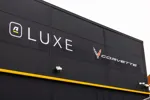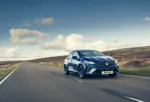According to EurotaxGlass’s, publishers of the Glass’s Guide to Used Car Values, the number of new cars available in the UK buyers has increased by a 42 per cent of over the past three years.
In the new car market there are currently 62 manufacturers collectively offering 322 model ranges with 6,114 distinct model variations (based on bodystyle, engine, trim and gearbox options). Just three years ago the same number of manufacturers offered 4,301 models from 292 model ranges.
"One direct consequence of the rise in vehicle choice is a fall in the total number of registrations for each model," said Alan Cole, editorial consultant for the Glass’s market intelligence service.
The overall average UK registration per model currently stands at just 563.
"Not surprisingly, the fewer the number of available models the higher the average number of registrations. Mini, with just 19 different models currently available, has the highest number of average registrations at 1,679. By contrast, Mercedes-Benz offers a vastly greater quantity of models and consequently now records only 167 registrations for each one."
With the rise in the number of vehicle ranges and individual models, dealers have the difficult task of selecting models to display in their showrooms or make available for test drives. The majority of franchises will sell only a tiny number of each model available to them. For example, with 515 models in their new car range, each of the UK’s 650 Ford dealers will only sell an average of 1.1 units of each model per year.
The situation is better for some of the prestige brands but not all. The 157 BMW dealers with access to 313 different models will each sell an average of 2.08 units per annum, whilst the Mini dealer network, with just 152 dealers and 19 models, each sell 11.05 units annually. However, the 220-strong Audi dealer network with 351 models, will typically only sell 1 unit of each model every year.
EurotaxGlass’s says the number of available car models will have to be rationalised.
"If vehicle manufacturers do not do this themselves, they may be forced into so doing by their dealer networks. When dealerships are in a position to be in better control of their own destiny and choose only to stock models that consumers actually want, model rationalisation will occur naturally," said Cole.
"One can speculate that the small number of Mini models available has in some way contributed to the marque’s phenomenal success," said Cole. "The limited number of models simplifies the consumer’s choice and makes it much easier for sales staff to understand and communicate the merits of individual variants. It also makes the production logistics easier and - importantly - cheaper, thereby helping to boost profits per unit."














Login to comment
Comments
No comments have been made yet.